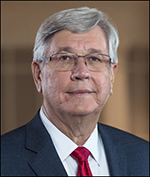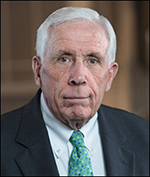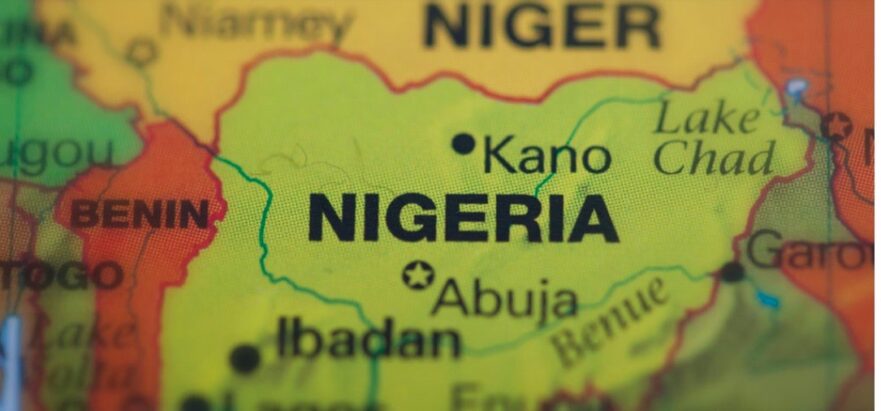Ken Camp/Managing Editor Reprinted from Baptiststandard.com
Representatives from multiple human rights and religious liberty organizations joined the U.S. Commission on International Religious Freedom in urging Congress to take action regarding ongoing persecution in Nigeria.

Randel Everett, founding president of 21Wilberforce and a former executive director of the Baptist General Convention of Texas, and Brent Leatherwood, president of the Southern Baptist Convention’s Ethics and Religious Liberty Commission, were among more than two dozen faith leaders, human rights advocates and former U.S. lawmakers who signed a letter to Congress regarding religious persecution in Nigeria.
The letter—entered into the Congressional Record on Dec. 12—calls for Nigeria to be designated a Country of Particular Concern by the U.S. Department of State and for the appointment of a special envoy for Nigeria and the Lake Chad Region.
Under the International Religious Freedom Act of 1998, the CPC designation is reserved for nations that engage in or tolerate “systemic, ongoing and egregious violations” of religious freedom.
The State Department failed to include Nigeria in its annual CPC list in 2021 and 2022 after including it in the 2020 list. The U.S. Commission on International Religious Freedom repeatedly has recommended CPC status for Nigeria since 2009.
‘Slaughter’ of Christians in Nigeria
The letter specifically urges members of Congress to support HR 82—introduced by Rep. Chris Smith, R-N.J., and Rep. Henry Cuellar, D-Texas—that calls on the State Department to designate Nigeria as a CPC and to appoint the special envoy.
“A staggering 90 percent of all the Christians killed for their faith worldwide last year were killed in Nigeria, according to Open Doors, an increase from the 80 percent it reported in 2021,” the letter to Congress stated.
It pointed out 5,000 Christians were reported to have been killed for their faith in 2022.
“Most of this slaughter is now carried out by militants within the Fulani Muslim herder population, who have been allowed to act largely with impunity,” the letter stated, adding terrorist groups such as Boko Haram and the Islamic State West Africa also have attacked and killed “thousands.”
Since 2009, about 17,000 churches have been burned and attacked, the letter noted.
“As Africa’s most populous country and its largest economy, Nigeria wields significant influence in sub-Saharan Africa. By allowing religious persecution to proliferate within its borders, Nigeria is compounding already heightened regional insecurity,” the letter concluded. “Both American interests and the International Religious Freedom Act require a response.”

Frank Wolf, a former member of the U.S. House of Representatives who now serves on the U.S. Commission on International Religious Freedom, signed the letter to lawmakers.
“The United States must hold the Nigerian government accountable for failing to protect the religious communities within Nigeria,” Wolf said.
In addition to designating Nigeria as a CPC and appointing a special envoy, Wolf urged Congress to ask the Government Accountability Office to “investigate the effectiveness of U.S. assistance to Nigeria in achieving religious freedom objectives in the country.” The United States gave Nigeria more than $1 billion in foreign aid last year.
Two days after the letter was presented to Congress, the U.S. Commission on International Religious Freedom issued a statement condemning “the recent uptick of Islamist insurgent attacks across Nigeria targeting communities based on religion.” The statement reiterated the commission’s call for the State Department to designate Nigeria as a CPC.
“In the past month, Islamic insurgent-directed Fulani gangs killed at least 10 Christians in Taraba State, while a dozen similar gunmen kidnapped over 150 people in Zamfara State, and Boko Haram killed 15 rice farmers in Borno State. These incidents serve to further escalate tensions in a country where violence divides and erodes trust, threatening Nigerians’ freedom of religion or belief,” the commission stated.
Frederick A. Davie, vice chair of the commission, expressed alarm about the frequency of violence in Nigeria in recent months.
“This momentum is not stopping, and we cannot stand by and watch more Nigerians being targeted on the basis of their faith, especially as we near the holiday season, where we have seen this escalation in the past,” he said.

